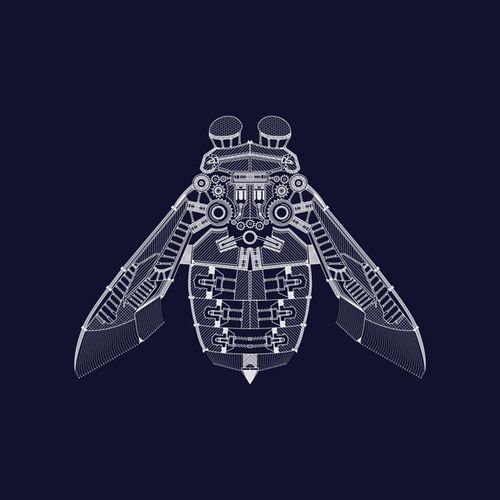I knew this day would come. People thinking we can replace nature’s services with robot technology…
I think it won’t work because of the following:
- The energy requirements of robots are greater than insects. How long can a drone that small fly for? 5 minutes? 10 minutes? 15 minutes? 30 minutes? A bee flys all day long and doesn’t ever need to be “plugged in”; it refuels as it travels.
- Bees and other insects already know what to do. They know where to go, how to get there, when to return, which flowers to visit. A bee already knows to avoid bad weather. They sleep in! No programming required!
- Insects such as bees are already solar powered (they make their food from plants, which are powered by photosynthesis)
- Robots are not currently biodegradeable and/or compostable. Are they? E-waste is a big problem today and this simply creates more of it. Recycling still requires the consumption of energy and the addition of new raw material to the batch.
- Insects such as ants detect chemicals. They’re chemical detectors. That’s how they work (as far as I know). It’s not just their eyes, but their antannae.Do you want to know what the smallest CO² chemical detector is today? Unless there has been some amazing development in the field of gas chromatography that I am not aware of, current gas detectors would need to be mounted on a drone so big, that it would not be able to manouvre around individual flowers with enough precision. It would be like a fucking bald eagle trying to thread a needle with a cross wind.
- Bees aren’t the only pollinators. There are pollinators even smaller than bees that can pollenise the tiniest of flowers only a few mm across.
- Making one robot bee is not the same as making a whole swarm. Who is going to make the swarm? People? Or still more robots? So then there will be more “embodied energy” tied up in the manufacturing stage.
- Most current manufacturing methods are not really sustainable in the long term. They just aren’t. Because they require things like lasers, magnets, chemicals, copper/PVC wiring, steel moulds, energy, transport.
- Do we seriously see ourselves making an equivalent of the Earth’s biomass of insects for the next million+ years? Like a billion tonnes of robot bees? Where is all that material going to come from? More mines? Current mining operations endanger many species all over the world; habitat destruction will endanger further species… so it just seems to me that as we try to apply more and more technology to solve more problems, technology itself creates an ever-decreasing viscious circle.
Humans have this kind of “wait and see” approach, which I think is crap. Sure it “can be done”, but making robot bees is probably a thousand times less efficient than natural bees (if not a million times less).
I think it’s time robot technicians admitted something. That they cannot recreate a single bee, fly or mosquito. Like I say, is it biodegradeable, self-assembling, and self-regenerative? No. If you look at even the most advanced robot and then put an insect or bacterium alongside it, the natural version is way more advanced (even in terms of the hierarchical structure of the materials alone).
I’m open minded. I’m creative. I’m optimistic. But this is clunky at best. This is stupid. This is wrong. This will create more problems for ourselves. And I think anyone who knows about science, manufacturing, or ecology, will probably agree with me.
The way I see it, digging up the Earth is still quite a primitive thing to do. And there is only so much we can dig. Better to have a circular economy and manufacturing industry. That’s how nature does it, with zero waste!
I really think there is only one way we can go and that is a “less is more” approach. And I think if we don’t change, nature will simply force us to. It’s hard to be productive as well as profitable in a blizzard, a heatwave, a flood, etc.
I’ve been told that I shouldn’t even be garnering additional exposure for this idea by even discussing robot pollination, and to take my thoughts offline. But I think it’s better to leave this right up here so that some of my connections can put up their arguments as to why they think it won’t work. I’d particularly like to hear from biologists. Tell us all the ways insects are superior to synthetic robots. :)


